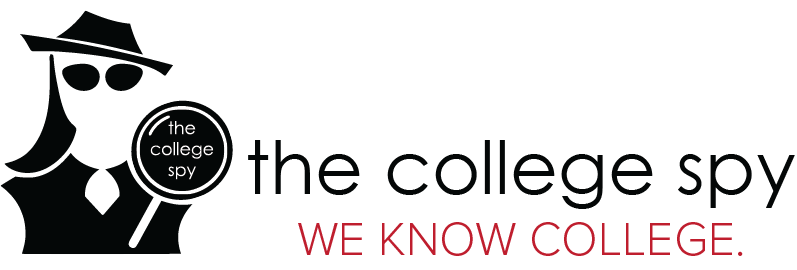Strategies for Success in Navigating Test Optional Admissions
/The role of standardized tests in the college admissions process has always been difficult to understand, with most people overestimating their importance at most colleges. Now, with more colleges allowing applicants to apply without test scores, it is even harder to decipher how test scores (or the lack thereof) will impact an applicant’s likelihood of acceptance.
I have been “spying” on this subject for several years. The following is The College Spy’s guide to what students and parents need to understand about the changing landscape of standardized testing in college admissions.
What does test optional, test flexible and test blind mean?
In lieu of requiring students to take and report scores for the SAT or ACT, colleges have three choices. They can be test optional, flexible or blind.
• Test optional colleges allow the applicant to apply with or without test scores.
• Test flexible colleges require some form of assessment but it doesn’t have to be the SAT or ACT. Some colleges allow applicants to submit AP test scores, IB exam scores, or a graded assignment instead.
• Test blind colleges are not interested in evaluating standardized test scores. If students submit them, these scores will not be considered as part of their application.
It is very important to read each college’s application requirements carefully. Some colleges are test optional for most majors, but not all. For example, some test optional colleges require students who intend to study engineering, nursing or education to submit tests scores even though they do not require test scores for other majors. Other colleges require students who do not submit standardized test scores to provide alternative evidence of their abilities, such as a paper, portfolio or additional letters of recommendation.
Are test optional admissions policies new?
No. The first college to adopt a test optional policy was Bowdoin College (a small, liberal arts college in Maine) in 1969. Bates College (also in Maine) followed suit in 1984. Worcester Polytechnic Institute (Massachusetts) was the first science and technology university to implement test optional in 2007. The University of Chicago (Illinois) was the first highly selective research university to embrace test optional policies in 2018. As the pandemic began having an impact on the admissions process in 2020, over 1,000 colleges were test optional. For the 2022 admissions cycle, the number of accredited 4-year colleges and universities which have adopted test optional admissions policy has ballooned to over 1,750. A full list of test optional colleges and universities can be found at fairtest.org.
Why have so many colleges stopped requiring the SAT or ACT?
Colleges that do not require the SAT or ACT have found that these tests are not necessary to predict which applicants are going to thrive academically on campus. Admissions professionals at test optional colleges generally view academic rigor and grades as the best indicators of success at the college level. In other words, they look at what classes applicants took in high school and how they did in them. Admissions professionals at test optional colleges are able to select students using these alternative indicators of success.
Many colleges have stopped requiring the SAT or ACT in an effort to increase diversity on their campuses. It has been shown statistically that white and wealthy students score higher on the SAT and ACT than black, hispanic and low-income students. Colleges who want to increase educational access to Black, Hispanic, first-generation and low-income students may remove the requirement of SAT or ACT test scores to attract more applications from these demographics.
Colleges also choose test optional admissions policies to improve their selectivity relative to other colleges in the statistics published by U.S. News and World Report and other college guides. Colleges that are test optional improve their position in the rankings relative to colleges that require tests in two ways. First, by allowing students to apply test optional, colleges increase the number of applications they receive. The more applications received, the more students the college must reject, the result being a lower rate of admission and a higher placement in the rankings. Second, colleges report the middle 50% of their test scores to U.S. News and World Report and other college guides. Students who choose to take advantage of a test optional policy by not submitting test scores are presumably students who had lower scores. Since those lower scores are not shared with the college, the college is unable to report them, skewing their middle 50% of test scores higher than it would be if all scores were received and reported.
Why did the pandemic cause more colleges to go test optional?
Since March 2020, many colleges have implemented test optional policies because they are concerned that the pandemic will result in a low number of applications. Students who have not been able to test will not be able to apply if the tests are required. Other students may have lower scores than they would have if there had not been a pandemic (due to testing under stress, not being able to take advantage of tutoring and test prep courses and not being able to test more than once) and those students may self-select out of the admissions pool because they do not believe their scores are high enough to warrant an acceptance. Additionally, colleges are in competition with one another for students. As the wave of colleges moving to test optional policies expands, other colleges are under increasing pressure to do the same in order to maximize their chances of receiving applications from as many qualified students as possible.
Does test optional mean applicants are, in effect, excused from taking these tests without any penalty?
No. All high school juniors should, to the best of their ability considering the limitations and stress imposed by the pandemic, plan to study for and take the SAT or ACT.
Here are the reasons why:
• A score that matches or exceeds the grades and rigor demonstrated by a student’s transcript will enhance their chances of getting accepted to the colleges on their list.
• If students do not submit test scores, colleges may assume their scores are below their published middle 50% score.
• Some colleges use SAT or ACT scores to determine merit aid. Students do not want to miss the chance to receive a discount on tuition.
How do students determine if they should submit their scores at a test optional college?
Students should submit their SAT or ACT scores if the scores reflect their academic abilities. It is also helpful to know the middle 50% of scores at the schools on their college lists. Knowing how their scores compare to matriculated students at a particular college can help determine if students are more competitive applicants with or without their test scores. Students can find this information on the common data set, published by most colleges.
Many students suffer from “test score anxiety.” These students make the mistake of believing their test scores are not competitive when they are fine scores for the colleges on their lists. Students who are unsure whether to submit their test scores can call the admissions offices of the colleges on their list. Admissions counselors will be more than happy to advise you on this and other aspects of their admissions process.
Will students be accepted at colleges if they don’t submit SAT or ACT scores?
They might, but the opportunity to exclude a test score does not necessarily enhance the likelihood of admission. In fact, it may do just the opposite. Admissions counselors may assume that the absence of a test score indicates that the applicant did not believe their scores would have been competitive. Whether or not that assumption is made, the absence of a test score necessarily means that greater weight is placed on the other parts of the application. The rest of the application must be strong enough to warrant an acceptance. In this regard, it always helps a student to have a “hook,” something that makes a student more attractive to a college than the general applicant pool. Examples of hooks are being a legacy, athlete, musician or full-pay student. Also, consider other strategies to enhance the likelihood of acceptance including applying early decision (if available) and affirmatively demonstrating interest in the college in a manner that is likely to be tracked by the admissions office (e.g. participating in an interview with alumni or admissions staff, following the college on social media, etc.).
The College Spy’s Best Advice:
All students should balance their college list with a mix of reach, target and safety schools. Students who are applying to colleges where they do not intend to submit their score should consider these colleges to be reaches and balance their college lists with schools where their test scores are competitive.
Students who are not submitting a test score because they have not been able to test due to the pandemic or otherwise should indicate the reason there is no test score in the additional information section of the application. This will help avoid any assumptions being made by the admissions professionals who will be reviewing the application.
How The College Spy Can Help
The College Spy is hosting a four-week course for parents of college bound students. In this live, interactive and online course, you will gain the knowledge and confidence to guide your student through the college admissions process. Our founder, Michelle McAnaney, will share her expertise with you on the following topics:
How to build a college list that best fits your child.
How to research colleges to fully understand what they have to offer.
How to choose between the SAT, ACT and Test Optional.
The college application timeline
College application strategies for success
The impact of COVID on admissions and what to do about it.
Overview of financial aid
For more information, including dates, times and price, please click here.
Register today as space is limited.
Michelle McAnaney is the founder of The College Spy, a full service independent educational consulting firm that assists students and families across the US and internationally with the college selection and application process. Prior to founding The College Spy, Michelle was a guidance counselor and educator for more than 15 years, including serving as the Director of Guidance at two high schools, an adjunct college professor and a GED tutor. Michelle holds a master’s degree in school counseling and a bachelor’s degree in human development. She completed UC Irvine’s certificate program in educational consulting and is a MBTI (Myers-Briggs Type Indicator) Certified Practitioner and a NLP (Neuro-Linguistic Programming) Master Practitioner. Michelle visits over 40 colleges each year so that she has first-hand knowledge of the colleges and universities her clients will be considering. You can find her on Facebook, Twitter, Instagram, LinkedIn.





